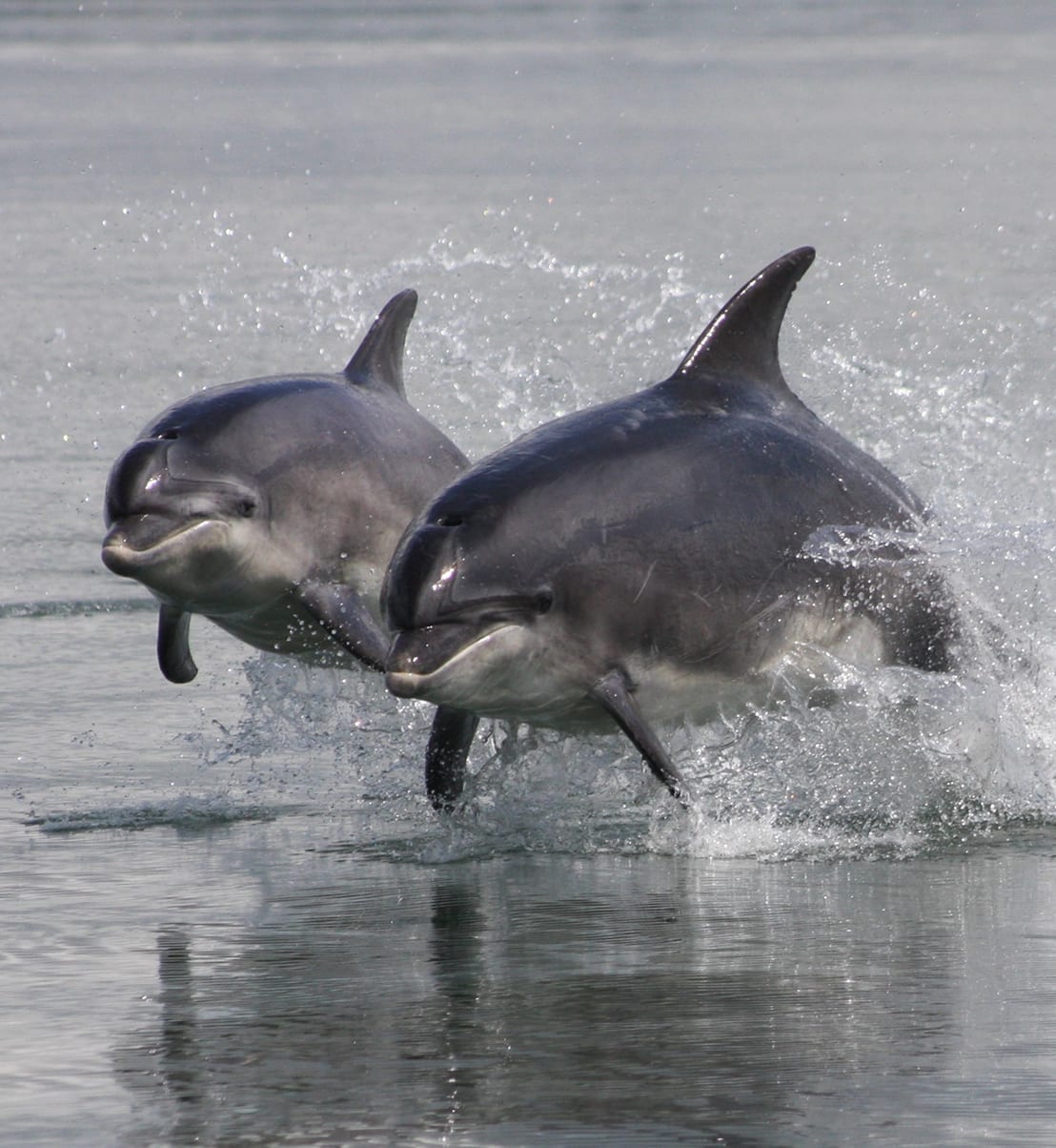Both schemes are the backbone to the IWDG & have actively built up an unrivalled dataset over a 28 year period which is crucial to maintain to ensure we continue to develop our understanding of these unique animals into the future.
![]()
Sighting Schemes
The Irish Whale and Dolphin Group has operated an all-Ireland cetacean (whale, dolphin and porpoise) sighting scheme since 1991. By reporting your sighting records through our online form, you are providing us with important information to validate your records. This process ensures that the data stored in the IWDG sightings database is of a high standard, making your observation more useful for conservation and research purposes.
Over 30,000 records are currently stored by the IWDG sighting scheme database over 28 years which provides an unrivalled dataset to identify trends in Irish cetacean species distribution and abundance overtime.
Your sighting contributions add to our existing knowledge base and are used to inform the proper management of the twenty five species of cetacea recorded to date in Irish waters under both Irish and European law, to help ensure their protection into the future.
Constant
Effort Sighting
Since 2003 headlands and other elevated vantage points along the Irish coast have been used as an important monitoring tool to locate, observe and record whales, dolphins and porpoises on a monthly basis during all seasons. These “Constant Effort” or timed watches take up 60 – 100 minutes during settled weather with calm seas, light swells and good visibility.
To date more than 1,000 such effort watches have taken place from key sites, by a small but dedicated team of recorders. They have identified important habitats and seasonal trends for a variety of species ranging from harbour porpoises to fin whales. This form of non-invasive monitoring does not disturb animals, is an extremely efficient and a cost effective way of gathering data on the whales and dolphins that occur in our inshore waters.
Recent publication using Constant Effort data: Ryan et al. (2015) Longitudinal study of humpback whales in Ireland JMBA
Stranding Schemes
An all-Ireland stranding scheme has been maintained by the IWDG since 1991. A stranding can either be of a live animal that has beached itself or a carcass that has been washed ashore. If you find a stranding it can be reported to us via the Report a Stranding page on this website or email strandings@iwdg.ie Sending photographs, a location and the date found is very useful. If you find a live animal please contact your local National Parks and Wildlife Service wildlife ranger to determine the best course of action.
Almost 4,000 strandings have been recorded by the IWDG between 1753 and 2019 making it one of the largest strandings databases globally. Strandings help us to monitor apparent changes in mortality from year to year, can highlight issues such as unusually high numbers of strandings which may need investigation or provide information on rarely seen species like beaked whales.
Latest publication: McGovern et al. (2016) Temporal and spatial trends in tranding records on the Irish coast 2002-2014_JMBA
Browse Sightings
and Strandings
Please explore the validated sightings and strandings reported to us over the past twelve months. You can search by species, location or time period to see what’s been recorded in your area or Ireland as a whole.
Publication: Review of 100 years of strandings data Coombs_et_al-2019-Marine_Mammal_Science

